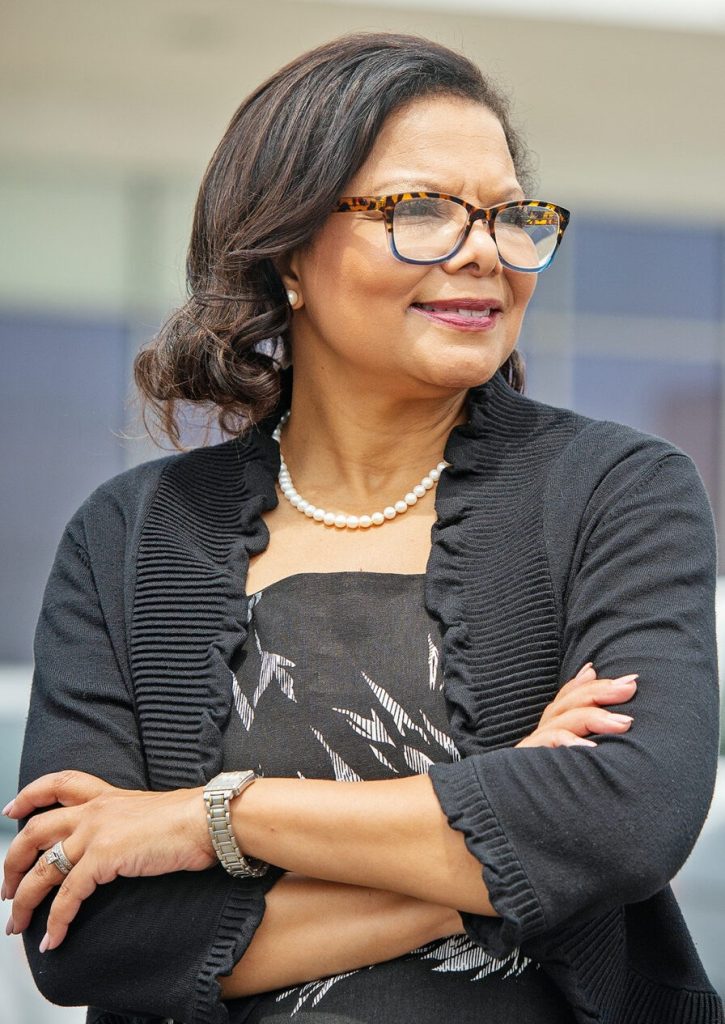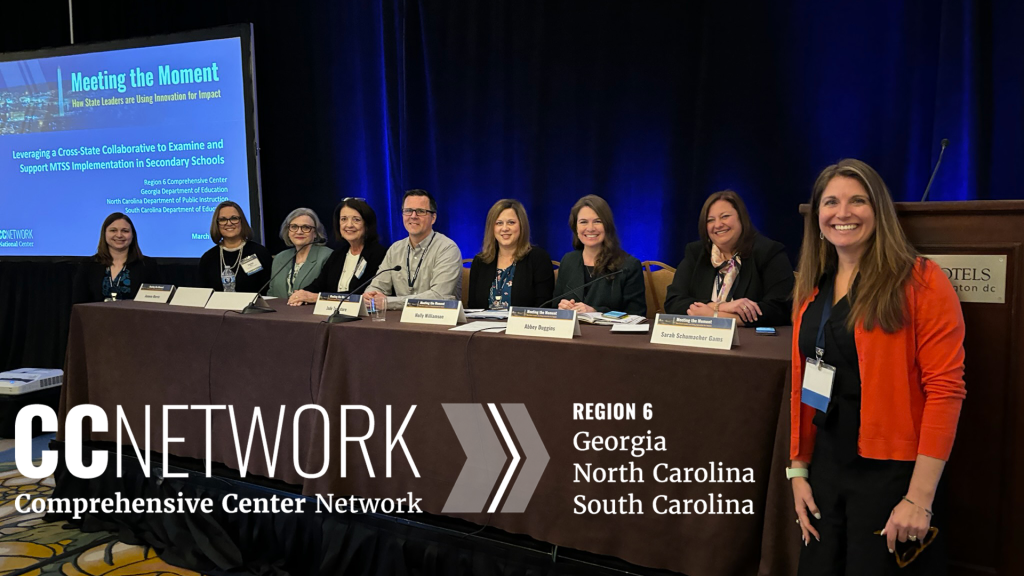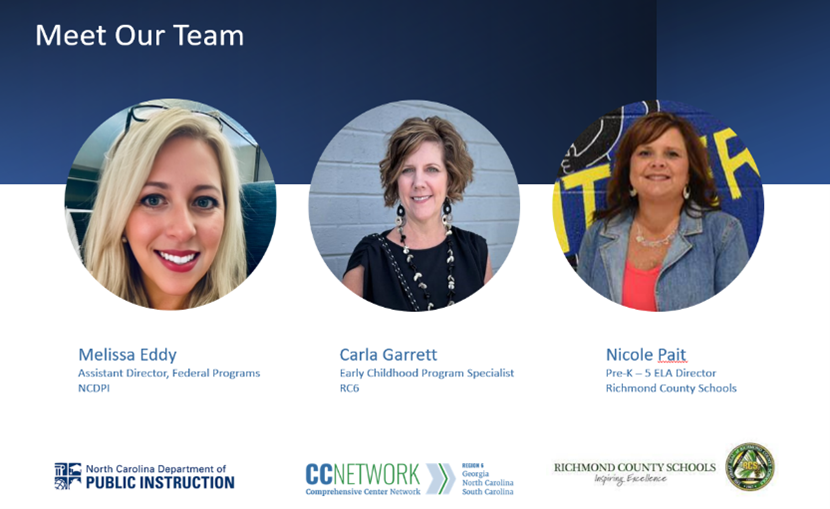Region 6 Comprehensive Center at Meeting the Moment
At a recent convening of the Comprehensive Center Network (CCNetwork), the Region 6 Comprehensive Center (RC6) joined State Educational Agency (SEA) teams, technical assistance providers, staff from the U.S. Department of Education’s Office of Elementary and Secondary Education, as well as other partners from across the nation, in a gathering designed to explore innovative strategies used by state leaders. Representatives from all 19 Regional Comprehensive Centers attended.

Co-Director, RC6
George Hancock, Co-Director, RC6, was on hand for the two-day convening, which was held in Washington, D.C. He shared his take-aways, as well as a bit of the history of the RC6, which is housed at SERVE. The RC6 provides technical assistance to SEAs in North Carolina, South Carolina, and Georgia to help them address key issues, such as supporting low-performing schools, increasing equitable access to quality educators, and documenting state-level policy implementation with the intent to build capacity at multiple levels across states.
“The best part of the Meeting the Moment convening was the opportunity to have two solid days at the table listening to people who are in the trenches. There was synergy on both sides, which helps to reinvigorate our desire to do the work with passion, duty, and obligation,” says Hancock.

Dr. Maria Pitre-Martin, Executive Director, SERVE at UNC Greensboro noted, “Seeing what other states have been doing was exciting and it was a great learning experience in working with other states. We had the opportunity to hear from a lot of different Comprehensive Centers.”
Collaboration is Key
According to Hancock, one thing was clear at the convening—”the RC6 team has done a masterful job in collaborating. This is part of the process that listens first for the need and then works collaboratively to respond to the need, rather than just offering a fix. The important question is how can we get to the decision makers to simplify the process?”
“The willingness to work together to move ahead was showcased in the work. It was great to get to see everybody and hear about the terrific work going on throughout the regions. You want to make sure you aren’t missing anything!” says Hancock, whose lens includes time spent as a teacher, a principal, and ten years working for the North Carolina Department of Public Instruction (NCDPI).
“We have a high number of people on staff who had the experience and the knowledge working with schools and districts; and a reputation for doing a lot of work in historically underserved populations,” he added.
The RC6 Team at Meeting the Moment
The work of the RC6 currently encompasses 13 projects across the three states, including support for school improvement programming, Reading initiatives, career accelerator program, Multi-Tiered Systems of Support (MTSS) implementation, Family Engagement, STEM, Early Childhood, Whole Child, and Alternative Learning Programs.
Members of the SERVE and RC6 Team attended the convening to connect with education leaders, lift best practices, and inspire continuous improvement. Representatives from the RC6 and regional states met to share information about two projects.

Samantha Durrance and Dr. Beth Rice, along with SEA staff from North Carolina, South Carolina, and Georgia, shared highlights from the RC6 MTSS Three-State Collaborative project. The Collaborative addresses the high leverage problem of how schools can best identify students experiencing academic, behavioral, social-emotional, attendance, and other challenges and provide them with evidence-based supports via multi-tiered systems of support. The project engages SEA leaders in a community of practice with the goal of providing space and opportunity to share common strengths and areas for growth in their support of MTSS for districts and schools.
A presentation and panel discussion titled, “Leveraging a Cross-State Collaborative to Examine and Support MTSS Implementation in Secondary Schools” included an overview of the Multi-Tiered System of Supports (MTSS) three-state collaborative project, observations from six high school MTSS stories; including ration to better understand the unique challenges faced by secondary schools implementing MTSS and support schools and districts in overcoming those challenges.

Carla Garrett, RC6 Early Childhood Specialist, presented along with Melissa Eddy, NCDPI, and Nicole Pait, Richmond County Schools “Equitable Access to High Quality Learning Environments: A Focus on Infant-3rd Grade in NC”.
The presentation’s overall focus was on how to improve equitable access to high quality learning environments for young learners through knowledge and access to resources.
Visit the RC6 website to learn more: http://region6cc.uncg.edu.
Story by: Judi Rossabi, Communications Specialist, SERVE
Photos by: SERVE staff





